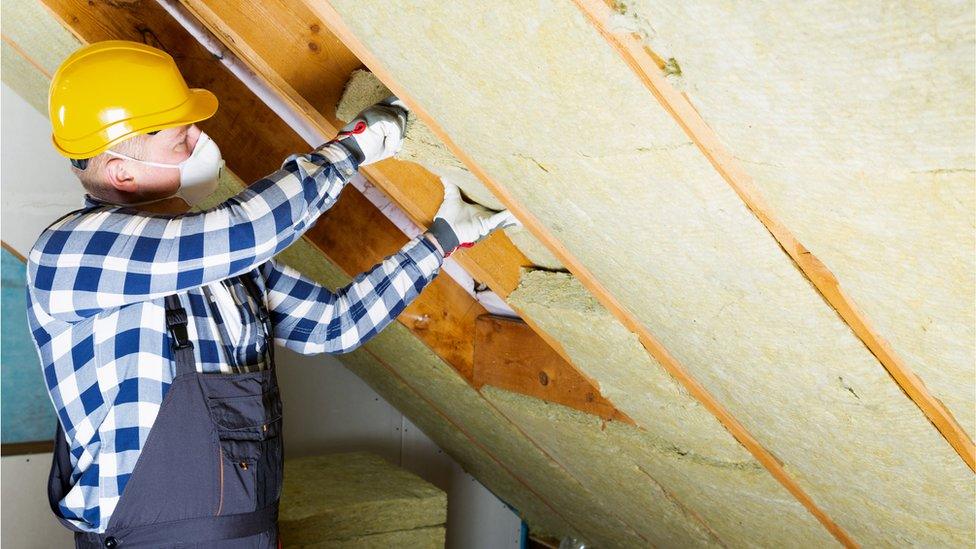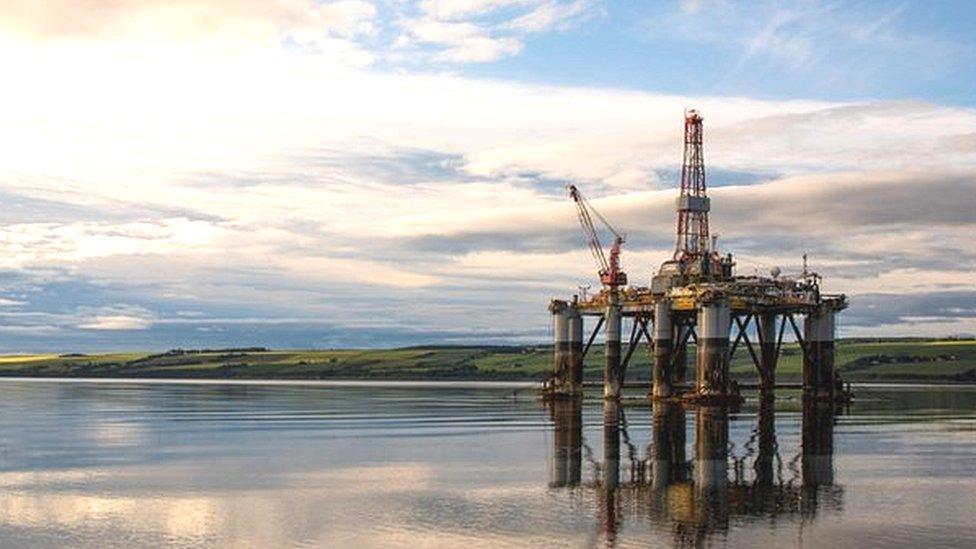Tax wealthiest 1% to fund home insulation, say Greens
- Published
- comments
Government nothing short of dangerous, say Green co-leaders
The Green Party is calling for a new tax on the wealthiest 1% to fund investment in renewable energy and home insulation.
At its annual conference in Harrogate, the party's co-leaders said the levy could raise £70bn to help reduce energy costs and emissions.
They argued that better insulated homes could save households hundreds or thousands of pounds per year.
And they called for windfall taxes on oil and gas firms to be extended.
The party has long advocated higher taxation for the very richest as a way to reduce inequality and fund the transition to cleaner energy.
In a conference speech, Green Party of England and Wales co-leader Carla Denyer said better insulation would "bring bills down for good".
She told party activists that the situation with soaring energy bills was "critical" and demanded "immediate action".
"We've got the leakiest homes in Europe - losing huge amounts of energy through badly sealed windows and poorly lined walls," she said.
"It really isn't rocket science. The cheapest bill is the one you don't have to pay."

What is the mood at the Green Party conference?

The cheers in the conference hall every time a local council election victory was referred to said it all.
Among delegates I've spoken to in Harrogate, there is optimism bordering on quiet certainty that the successes seen at a local level this year will translate into more MPs at the next election.
Of course, that hasn't happened since Caroline Lucas was elected in 2010. So why do they think it will be different now?
One first-time attendee told me he felt it was the right time for people to be receptive to the Greens' message.
They also point to the scale of the increase in their number of councillors.
Others said the party often attracted those disenchanted with politics in general.
Several people told me they believed that bigger parties making more of the green agenda could actually help them rather than posing a threat.
One man told me "people always try to steal our clothes" but said they usually had "too many interests" to go far enough. Another added that "people see through that."
A party staffer went further: "They are literally saying our party name every time they talk about a greener future. Bring it on!"

Under the party's latest proposals, its wealth tax would begin at 1% for households with total assets worth £3.4 million or above.
This would then rise to 5% for those with assets worth more than £5.7 million, and to 10% for those with £18.2 million and above.
The party has also estimated a further £3bn a year could be raised by extending the windfall tax on the profits of oil and gas companies.
The government's levy covers profits posted after 26 May, when the policy was announced, but the Greens say it should be backdated to January instead.
The party has also said the UK's big five energy suppliers should be nationalised to pay for prices to be fixed at October 2021 levels.
Speaking at the conference, co-leader Adrian Ramsay said oil and gas companies were "flourishing" while "families struggle to pay their bills".
Cost of living
He added that the government's plan to to limit energy cost rises was welcome, but ministers should have demanded "something in return for the billions going to energy firms".
He added that money and powers were currently in "all the wrong places", and accused Prime Minister Liz Truss of "doing everything she can to maintain that status quo".
The three-day gathering in Harrogate is the first since May's local elections, which saw the Greens gain over 60 seats, more than doubling the party's representation on councils that had elections.
In an interview with the Guardian, external, Mr Ramsay said his party wanted to continue to stress the link between social justice and energy issues as part of its pitch to voters.
He added that the cost of living had been "driven mainly by energy" and the "need for Green ideas has never been greater".
- Published10 January 2022

- Published22 October 2024
